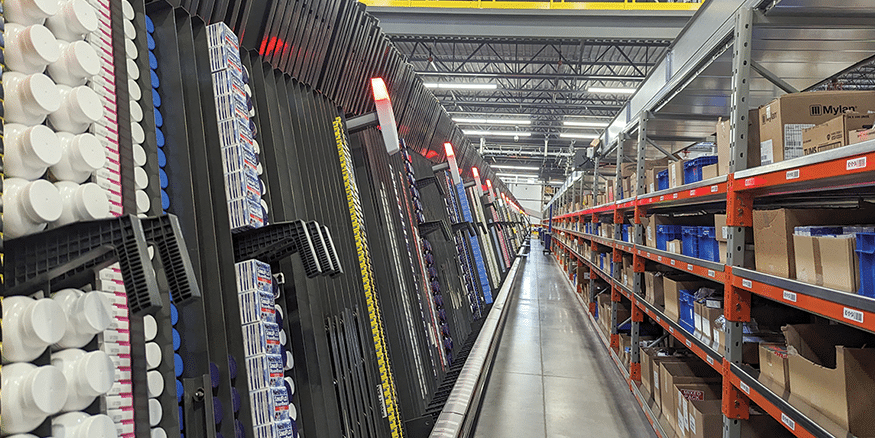What is a Specialty Pharmacy and What Makes Them Special?
As Canada’s population ages and rare diseases and chronic conditions are on the rise, more complex treatments and specialty drugs are being developed and used for patient care. Although there is no universal definition of what a specialty drug is, many of them have things in common, which include:
- being manufactured through a biotechnology process
- targeting chronic, complex, and/or rare diseases (e.g., cancers, inflammatory bowel disease, rheumatic diseases, cystic fibrosis)
- high cost and/or complex reimbursement criteria
- special handling requirements
Community pharmacies can often be pillars of healthcare, especially in rural areas across the country. This is evident as pharmacists continue to expand their scope of practice beyond the traditional role of dispensing medications to now providing more patient-focused services and care. Specialty pharmacies have a unique offering as they can provide support to Canadians living with a complex, chronic condition or rare disease. They improve the patient experience by:
- helping navigate the reimbursement challenges and reducing lead times to access these medications
- working with their specialist to manage complex care considerations and interactions
- monitoring ongoing therapy, which improves adherence
- reducing costs to the healthcare system by managing toxicities and adverse events
- and more
Specialty pharmacies only stock specialty drugs, which helps to ensure people can receive their medication timely. They can also deliver medications directly to an individual’s home or infusion clinic and can perform medication consultations virtually.
Their services require specialized facilities to ensure a sterile environment for compounding and specialized training for proper handling of these medications which may need to be infused or injected. Specialty pharmacists working at these pharmacies are highly trained practitioners with knowledge, experience, and expertise to properly handle, store and administer these complex specialty drugs (e.g., appropriate cold storage or compounding). In many cases, specialty pharmacies are the only way in which Canadians can access these types of medications.
The healthcare system can be complex for these specialized medications. Most manufacturers utilize Patient Support Programs (PSPs) to assist patients in overcoming barriers to accessing treatment like financial assistance or administrative paperwork. Specialty pharmacies work closely with PSPs to ensure the patient experience is seamless and monitor adherence to ultimately enhance their health outcomes. PSP coordinators work closely with specialty pharmacists to help guide patients through the sometimes-overwhelming process including ensuring that medications are seamlessly delivered to their home, hospital, or infusion clinic.
From a pharmacist’s perspective, working in a specialty pharmacy is especially rewarding. Patients with chronic conditions like Crohn’s disease, ulcerative colitis, or other gastrointestinal conditions are often referred to specialty pharmacies to be monitored during acute flare-ups or medication management like biologic therapy. These patients express that their quality of life has been significantly impacted negatively because they are unable to attend social events due to the severity of their condition. However, over time and with the aid of these specialty medications, we get to see many patients regain control of their own lives – choosing how they want to live rather than their condition dictating their life.
Planning vacations can also be challenging for individuals taking specialty drugs. Most public and private insurances only allow monthly dispensing due to high cost and special storage requirements, making advanced travel preparations necessary. Specialty pharmacies can support their patients with this as they coordinate with the PSP and insurance provider to secure approval for travel dispenses, as well as provide recommendations and packaging instructions to travel with these medications. In many cases, specialty pharmacies can also ship medications for those travelling within Canada.
In summary, specialty pharmacies are truly a unique niche with patient care at their core. By making complex, specialty drugs accessible, the specialty pharmacy is another important piece of the puzzle in a patient’s circle of care.



















